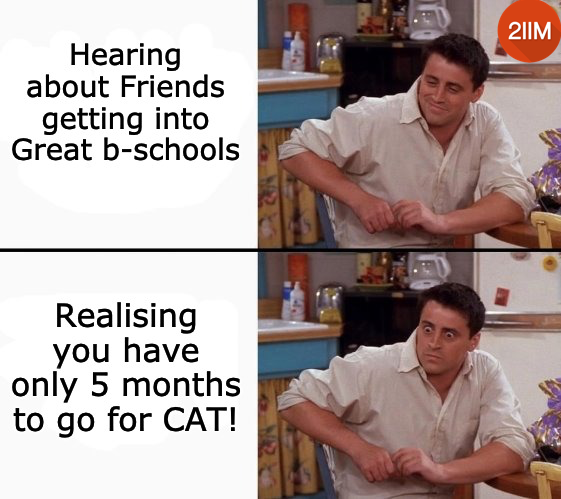CLAT Question Papers
CLAT Logical Reasoning section tests the candidates’ ability to frame arguments based on premise(s), and draw conclusions and inferences. Though the passages do not require as much prowess over the English language as such, the ability to read and comprehend them quickly will come in handy. This section is more about making logical conclusions about an idea, as inferred from the passages.
The following CLAT Logical Reasoning questions have been framed with adequate focus on the difficulty level of CLAT. The passages have been chosen with an eye on diversity of topics and the variety of themes and arguments.
Try these questions out for free, to check your mettle on CLAT Logical Reasoning!
-
Which of the following forms the premise for the author’s argument about alien life?
- Alien civilizations have not yet evolved on other planets orbiting other stars in the universe
- There is a high probability of alien life evolving, given the age of the universe
- The universe is still young enough for alien life to evolve in it
- Though alien life has not yet evolved in the universe, it is highly likely to do so
-
Which of the following statements is consistent with the findings of the 2015 study?
- There is a 92 % chance of us encountering life from other habitable planets
- 92% of the planets in the universe have not yet formed
- Earth became habitable as it was born early in the history of the universe
- There is at most an 8 % chance of Earth being the only planet inhabited by life in the universe
-
With regard to aliens, it is the author’s assumption that:
-
It is the author’s contention that we haven’t yet heard from aliens because:
-
Suppose it is known that of all the planets currently in existence, Earth is in the last batch, formed only after 80% of the others in the batch. This information:
-
Which of the following is the author most likely to believe in?
-
Which of the following is not true?
- Thanks to this fuel tax, the government could have higher revenue than it had predicted pre-Covid
- Ajit Ranade believes that India’s fuel tax is already high
- The author believes that fuel tax should spur the uptake of electric vehicles
- States have used suspension of labour laws as a tool to attract investors
-
Which of the following, if true, could undermine the author’s argument that fuel taxes will result in breathable air?
- Increased taxation on fuel has not resulted in a switch to electrical vehicles
- A switch to electrical vehicles has not resulted in a reduced carbon footprint in China
- Electric riskshaws are spreading fast due to the heavy subsidies that have poured into them recently.
- The price elasticity of Fuel prices is very low and changes in prices have not resulted in any behavioural changes among commuters.
-
What does the phrase ‘never waste a crisis’ mean?
- Painful reforms are necessary to ensure sound economic growth
- Crisis times are opportunities for governments to raise taxes
- Times of crisis are good occasions to push through unpopular measures
- Sometimes, government have to create what appear to be crises in order to push through reforms.
-
Which of the following inference has the author hinted at in the passage?
- Electrical cars will replace electric bikes in the future
- Suspension of labour laws forever is likely to attract investors.
- The fuel price in India is likely to head towards the levels seen in Europe
- Countries with higher fuel taxes tend to be more fiscally responsible.
CLAT Logical Reasoning: Earth and Outer Space
Given the age of the universe and the apparent high probability of life evolving on other planets orbiting other stars, where are all the aliens? A 2015 study based on data from the Hubble Space Telescope and Kepler Space Telescope might offer an answer: Earth was an early bloomer. The study, focused on the likelihood of the evolution of habitable worlds, finds that when our planet was born from our young sun's protoplanetary disk some 4.6 billion years ago, it was born into an era when only " 8 percent of the potentially habitable planets that will ever form in the universe existed." Most of the material available to form habitable planets is still around — giving lots of time for alien civilizations to form and get in touch with us.
“Never waste a crisis” is an old adage. The Covid crisis is a good time to enact painful reforms. Some reforms like the suspension of labour laws for three years by some states have caught the headlines, and been criticised, rightly, as half-baked. No investor will come if the change is limited to three years.
More rational and politically courageous is the abolition of once-sacred subsidies plus higher taxation of petroleum products. The central government raised the excise duty on diesel and petrol in March and May and increased the road cess to Rs 8/litre. State governments have raised their taxes too. Higher taxes could yield up to 1% of GDP, a fiscal godsend since the Covid-induced recession looks like cutting government revenue by 2-3% of GDP.
Economist Ajit Ranade says 70% of today’s consumer price of petrol and diesel is taxation, representing a prematurely high carbon tax. I disagree. Indian petrol at Rs 80/litre is still far cheaper than in Europe or Japan, though more expensive than in low-taxed USA. India is far more polluted than all of them. For breathable air we should raise fuel taxes to curb consumption and incentivise a switch to electric two-wheelers, and eventually electric cars. That will take time and technological change, but electric rickshaws are already spreading fast.



CAT Coaching in Chennai
CAT 2021
Enroll at 49,000/-
44,000/-
Online Classroom Batches Starting Now!

